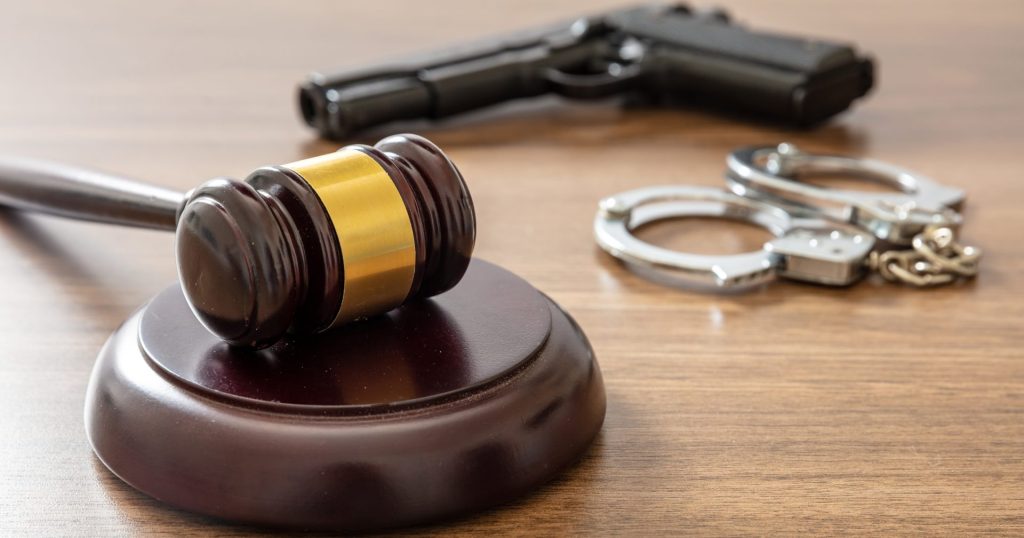If you are charged with a crime in South Florida, it may feel as if the whole world is against you. You may worry about jail, your job, and what your family and friends will think. You will also need to obtain – immediately – the services of a Miami criminal defense attorney.
What are your rights if you are charged with a felony or a misdemeanor? What will you need to do? How will a South Florida criminal defense attorney help you, and what steps can that attorney take on your behalf?
If you will keep reading this brief discussion of criminal defense strategies, the law in Florida, and your rights, these questions will be answered below.
What Steps Should You Take If You Are Charged With a Crime?
If you are taken into police custody and charged with one or more crimes in or near the Miami area, do not physically resist the police. Cooperate and comply. Whether you are accused of a misdemeanor or a serious felony, you will have two immediate priorities:
Exercise your rights.
Contact a South Florida criminal defense lawyer at your first opportunity.
You have the right to remain silent, and anything you say may be used against you. If the police try to question you, politely say something like, “I would prefer not to answer any questions until my attorney can be here,” and say no more. Contact a defense attorney immediately.
Do not sign any document or statement, and do not accept a plea deal before you meet with your attorney. Do not try acting as your own attorney, either. The law is too complicated, and your future will be at stake. Instead, put your case in the hands of a Miami criminal defense attorney.
How Will a Defense Lawyer Handle Your Case?
Your defense lawyer will explain your rights, your options, and how the law applies in your own circumstances. Your lawyer will then develop an aggressive, effective defense strategy while seeking to have the charge or charges against you reduced, dropped, or dismissed.
If it’s necessary, your defense attorney will take your case to trial, explain to a jury exactly what happened, and ask the jurors to find you not guilty – unless the evidence against you is overwhelming and your conviction is a foregone conclusion.
In that case, your defense attorney may instead be able to negotiate an acceptable plea deal. In a typical plea deal, the defendant serves an alternative or reduced sentence in return for the defendant’s guilty plea to a lesser charge.
But if you are innocent of the charge or charges against you, you should not take any plea deal. Insist instead on your constitutional right to a trial by jury, where your attorney will introduce a defense and cast doubt on the prosecution’s case.
What Are the Typical Defenses Offered in Criminal Cases?
In a criminal trial, the state presents its case first. When the state rests, it is the defense attorney’s turn to offer evidence. Typically in a criminal trial, one of the following defenses will be offered on a defendant’s behalf:
- Someone else committed the crime: This defense has several advantages. It paints the police and the prosecutor as inept bureaucrats persecuting an innocent defendant, and the defendant doesn’t have to testify as presumably he or she knows nothing about the crime.
- The defendant has an alibi: An alibi that relies only on the testimony of friends and family members is not a strong defense. Alibis should be established with “disinterested” evidence – an ATM or toll receipt, or video evidence from a third party, for example.
- Lack of criminal intent: If a defendant acted innocently (by not fleeing from the police or by consenting to a search, for example), the defense attorney can assert that the defendant had no criminal intent. To convict, the state must prove the defendant had criminal intent.
- The accusation is fabricated: The defense may contend that no crime actually happened and that the accusation against the defendant is fabricated. This defense is most frequently offered in cases that involve sex crimes or domestic violence.
- Affirmative defenses: Affirmative defenses don’t dispute the bare facts of a case. Instead, the defense contends that a defendant’s act was legally justified (such as a claim of self-defense or entrapment) or legally exempted (because of insanity or duress, for instance).
What Should You Know About Entrapment?
Entrapment is the defense that an official or an authority figure – usually a law enforcement officer working “undercover” – improperly induced the defendant to commit a crime that the defendant was not otherwise predisposed to commit.
A defense attorney may claim that without coercion from the official or authority figure, the defendant would not have committed or even have considered committing the crime.
What Should You Know About Duress?
Duress is the claim that a defendant committed a crime involuntarily under the threat of death or bodily harm. Generally, duress may only be offered as a defense if:
- The threat was to injure grievously or to kill.
- The defendant reasonably believed that the threat was real.
- The threat was imminent and impending when the crime was committed.
- Reasonably speaking, the defendant could not have avoided the threat.
The United States Supreme Court determined in 2006 that in federal criminal cases, duress is an acceptable defense, but the defendant in these cases has the burden of proof to offer evidence that establishes all of the elements of the duress defense.
What Else Should You Know About Criminal Defenses?
If you are charged with any crime in or near the Miami area, a South Florida criminal defense lawyer will review the particulars of your case, compile and scrutinize the evidence, question the witnesses, and develop a strategy for the best possible resolution of your criminal case.
If your legal rights were violated or if you are being falsely charged, your lawyer will try to have the charges dropped or the case dismissed. If the evidence against you proves your guilt, your lawyer will negotiate for the best possible plea deal and the most generous sentencing terms.
Choose a South Florida defense lawyer who is both an experienced negotiator and an accomplished trial attorney. If you have been charged with a crime in South Florida, make the call to that attorney as quickly as possible.


